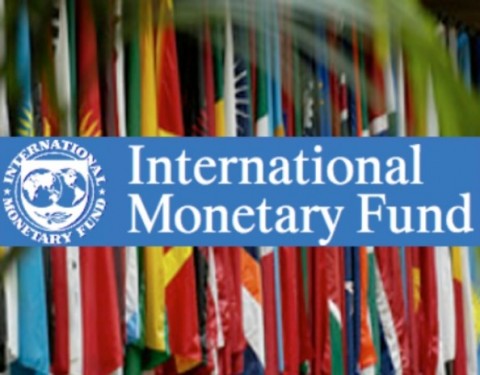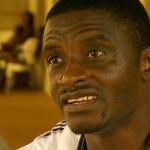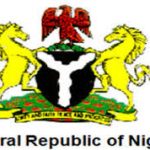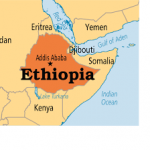IMF Reaffirms Support For Africa’s Recovery From COVID-19
African News, Featured, Latest Headlines, News Across Nigeria, News From The State, Uncategorized Saturday, October 10th, 2020
(AFRICAN EXAMINER) – The International Monetary Fund (IMF) has reaffirmed its commitment to supporting and partnering with Africa in order to ensure the continent’s recovery from the impact of COVID-19 pandemic.
Currently, in Africa there are more than a million cases, 23,000 deaths confirmed and countless others unconfirmed. Moreover, there is a terrible wave of jobs loss across the continent and family incomes has plunged to 12 percent.
According to the World Bank, up to 43 million more people are at risk of extreme poverty, reversing a trend that some international financial and observers of Africa’s socio-economic trajectory such as the IMF, have been so proud of.
The Managing Director of IMF, Kristalina Georgieva gave the assurance in her opening remarks at the second edition of the “Mobilizing With Africa High-Level Virtual Event”, which was hosted in Washington DC on Saturday.
Georgieva said the event was held because COVID-19 has excruciatingly continued its assault on the health and wellbeing of people, and on the economy.
“Today’s Mobilizing with Africa meeting is about decisive actions we can pursue to close this gap. At the IMF, we recognize how important and urgent it is to step up our support for Africa so that the continent can accelerate the long ascent to recovery.
“We are in this crisis together and it is in everybody’s interest to mobilize and fight this pandemic together. And that means mobilizing with Africa. We are prioritizing support for Africa’s policy makers through our financial programmes, surveillance, and capacity development programmes”, she said.
The crisis, according to her, offers opportunities for reforms and structural transformation underpinned by strong policies and institutions, adding that withoutreform, external support will not be effective or sufficient.
“We will be there for our members as they pursue their strategies to strengthen public financial management, ensure financial stability and inclusion, boost trade, eliminate barriers to private investments, enhance growth and generate jobs for their youthful populations.
“We will support measures to improve the quality of public spending in key areas – health, education, social protection, digitalization, and infrastructure”, she added.
She said since the maiden edition of the meeting in the spring, African policymakers have been acting swiftly in tackling the challenges, despite often doing so with very tight financial constraints, adding that on the average, they spent an additional 2.5 percent of Gross Domestic Product (GDP) on health and social programmes to meet their peoples’ needs.
The IMF boss also noted that the world has taken supportive action to mitigate the impact as international financial institutions have provided significant financial assistance in fast-track support.
“This includes around $26 billion from the IMF – monies that have helped fight the disease and cushion the economic blows on people and businesses. This is ten times more than our average annual lending in the previous decade.
“And, with the crisis still with us, we continue our mobilization. In the last weeks, the IMF Executive Board approved a six-month extension of higher access limits under our Rapid Credit Facility and Rapid Financing Instrument, as well as a six-month extension of debt relief for our poorest members under the Catastrophe Containment and Relief Trust”, she added.
Georgieva however, pointed out that countries like Burkina Faso, the Gambia, and the Central African Republic have put in place admirable governance mechanisms to ensure the funds benefit their people as intended.
She also observed that despite sizable domestic adjustments, African states still face financing needs of $1.2 trillion through 2023, adding that some countries are confronting high debt burdens forcing them to choose between debt service and additional social and health spending.
She said current commitments from international financial institutions and official bilateral creditors are expected to fill less than a quarter of this need, noting that with private capital still subdued, “we face a projected gap of over $345 billion through 2023, and nearly half this burden is in Africa’s low-income countries”.
To address the financing challenge, the director stressed the need for more collaboration and synergy between national authorities and relevant regional and global institutions.
“In all our activities we will work hand in hand with national authorities, regional institutions, and bilateral and multilateral partners. But all of us, countries and institutions must do more to support Africa to cope with the next phase, which is building a recovery from this crisis”, she stressed.
She further explained that the IMF is currently working with its members to further increase concessional lending capacity, adding that they have made impressive progress in replenishing thePoverty Reduction and Growth Trust and continue to work with members who can afford it to temporarily lend the IMF some of their SDRs to step up concessional lending to countries who need it.
“We are also calling for new grant pledges to make it possible to increase concessional financing for low-income countries. We commit to work with countries faced with unsustainable debt. We support the extension of the G20’s Debt Service Suspension Initiative.
“Beyond the DSSI, we recognize the need to further strengthen the international architecture for debt restructuring and we will pursue restructuring on a case-by-case basis when necessary. In all our activities we will work hand in hand with national authorities, regional institutions, and bilateral and multilateral partners.
“The pandemic does not respect national boundaries, we’re all climbing a mountain through a storm together, connected on one rope. And we are only as strong as the weakest climbers. So mobilizing with each other, mobilizing with Africa is not just the best choice. It is the one and only choice”, she further declared.
Related Posts
Short URL: https://www.africanexaminer.com/?p=56662






















